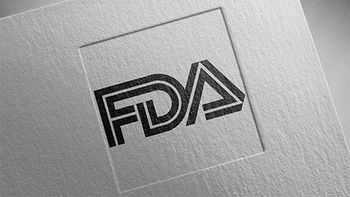
FDA approves Luxturna, first gene therapy for inherited disease to be commercialized
Therapy addresses a rare inherited form of vision loss
Sped along by a priority review and breakthrough-therapy designation by FDA, Luxturna (voretigene neparvovec-rzyl), was approved on Dec. 19 for “confirmed biallelic RPE65 mutation-associated retinal dystrophy.” Retinal dystrophies, caused by a variety of genetic factors, cause a progressive lost of vision that often ends in blindness; in this case, the RPE65 gene is implicated. The condition is believed to affect 1,000-2,000 patients annually. Spark Therapeutics submitted its Biologic License Application (BLA) in July; an application to the European Medicines Agency is pending.
Spark thus joins Novartis and Kite Pharma as the only other companies with approved gene therapies in the US; but those other companies have targeted cancer with modified T cells; in Spark’s case, its proprietary adeno-associated viral vector platform to edit genes is being used on retinal cells that are extracted from the patient’s eyes. Thus, the utility of genetic therapy for healthcare is being demonstrated beyond oncology. “This one-time gene therapy for an inherited disease represents a first-of-its-kind breakthrough that may lay the groundwork for the development of gene therapies for other conditions that are not adequately addressed today,” sad Jeffrey Marrazzo, CEO at Spark.
“The culmination of decades of research has resulted in three gene therapy approvals this year for patients with serious and rare diseases,” said Scott Gottlieb, FDA commissioner, in announcing the approval. “We’re at a turning point when it comes to this novel form of therapy and at the FDA, we’re focused on establishing the right policy framework to capitalize on this scientific opening.” He goes on to note that FDA is preparing new disease-specific guidance in this area, to be published in 2018.
Besides its accelerated approval, Spark also earned orphan drug designation from FDA (which will give it extended patent protection and tax credits), and one of the few rare pediatric disease priority review vouchers that FDA has granted (it would be the 13th since the program started in 2007). These vouchers entitle the holder to a priority review of any drug it chooses; they can also be sold, and prices have gone into the hundreds of millions of dollars in recent sales. The company says that details of its commercialization program will be made public in early 2018, including pricing. Like other commercial gene-therapy efforts, Spark will work with select treatment centers, where patient’s cells are extracted and then re-infused.
Newsletter
Stay ahead in the life sciences industry with Pharmaceutical Commerce, the latest news, trends, and strategies in drug distribution, commercialization, and market access.




